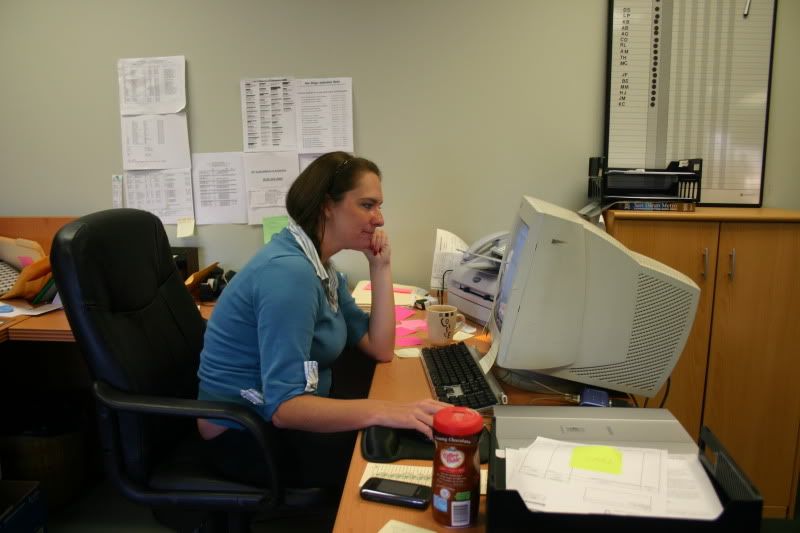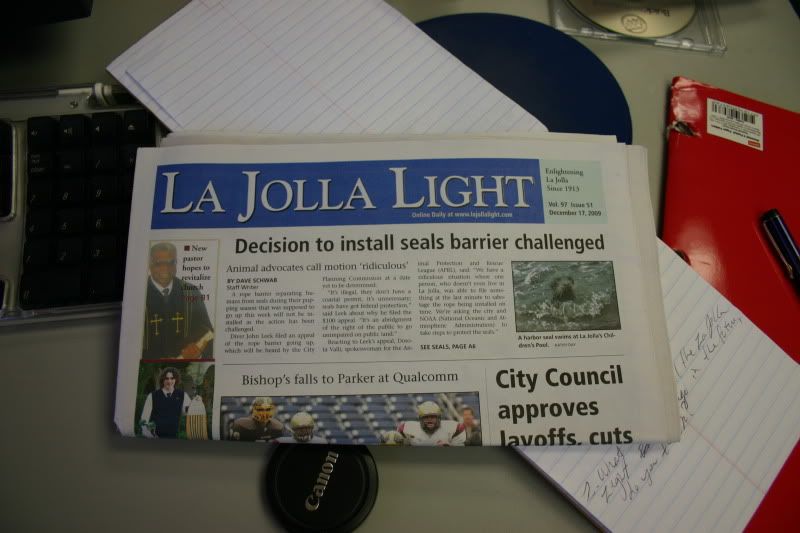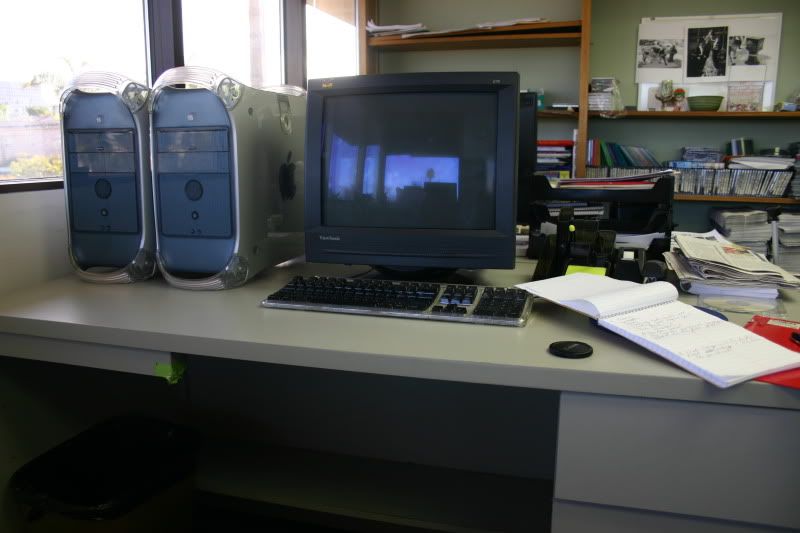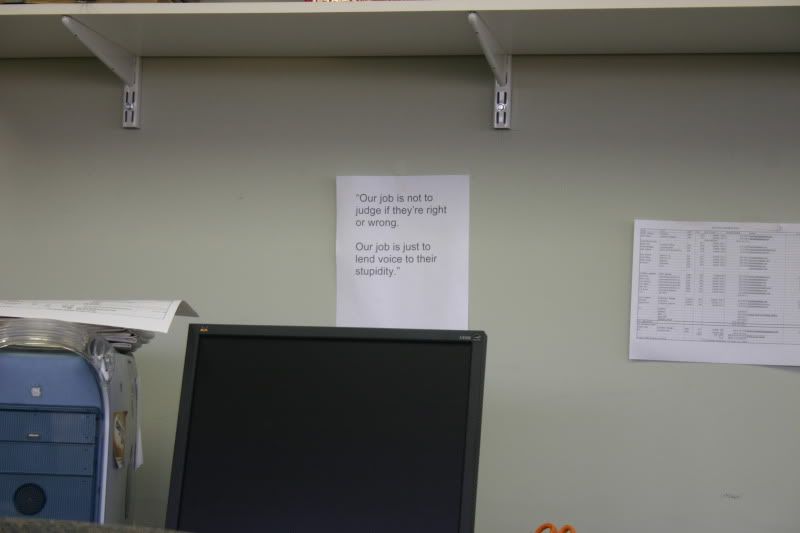In the office, people mostly wore semi-casual office clothing. Pictured is the secretary, wearing a blue sweater with a white collared shirt underneath and black pants: Perfect attire for an office setting. I wore similar clothes: A purple dress shirt, black pants and purple snakeskin shoes to match the shirt. I think that'll suffice for work as an intern.

My workspace was a desk with some writing room and a Mac computer. Also on the desk were postits, scotch tape, highlighters, pens, paperclips, and a stapler -- Typical office materials. The weekly edition of the Light was sitting on the desk along with an unnam
ed CD.
Something that shocked me was the sense of humor the office had. I saw this sign above one of the computers next to my workspace. It says "Our job is not to judge if they're right or wrong, our job is just to lend voice to their stupidity("they" being the readers)." This quote is true but something you don't expect newswriters to openly admit, which was sort of a shock, I guess you could say.
The expectations as an intern are as follows; I am expected to produce a well-written newspaper article by the end of the 3 week term, like the one pictured. My project is to create a story that is acceptable as newspaper material. This story pictured is one about the seals at Children's Beach, an often brought up subject in La Jolla. As an intern, I expect to maximize my writing skills, as it may be published. Also, during this internship, I hope to become a more proficient photographer, since I'll be photographing events for the Light, too

.
What Happened During the Day
I woke up way too early, around 6 a.m. I had to go to the La Jolla Light Office at 9:30 a.m. so I had some time to get ready. At 8:30 a.m. I left my house and drove to the office, only to get there at 8:35 a.m.; way too early. So I went back home and left a little bit later. The office is on the 3rd story of a building at the end of La Jolla Blvd, near downtown La Jolla. Upon arrival I met a man named Dave, who would help me out throughout my internship. He told me that he was going to the La Jolla historical society later that day, and I should come along to take pictures and do research on the subject of Red Roost and Red Rest, 2 historical cottages by the La Jolla Cove that have stirred up some controversy in the past. Before we left, I was given an assignment to learn more about a blood drive in Del Mar, but when I called for information, they only gave me a website. Afterwards, I went with Dave to RR/RR first and took pictures using my Canon Rebel EOS, perfect for newspaper photos. Then I went with him to the la Jolla historical society, where I looked through several files about RR/RR's history in newsprint and photos. After I was done looking through the files, I returned to the office, where I uploaded the photos I had taken on the intern folder in the Editorial Network at the office. Hopefully these photos will be used in the Light soon. After this, I had a lunch break, and I went to Pacific Beach, which was a mistake, because it took too much time, but there aren't many fast food restaurants close by.
In order to succeed at the Light, I'm going to have to work on my writing skills quite a bit, in order to create an acceptable newspaper article. Also, I'll have to do some research on controversies and events in La Jolla in order to create a an article that hasn't been overdone.
My hours are from 9:30 a.m. to 4 p.m., with a 1/2 hour minimum lunch break somewhere in-between. I wish I could start earlier so I could end earlier, but this schedule is okay.
Sarah's assignment
Has the economic crisis affected the La Jolla Light? How?
Yes, it has. We had to take a week off without pay last year, thankfully we didn't have to layoff anybody. However, one person left for graduate school and we didn't bother to replace them.
What changes will the La Jolla Light undergo because of the recession?
Adapting to more people using the web, and creating the website so it's not the same as other La Jolla websites, making it more like our own. We also need advertisers to support the Light, since the newspaper is free and is mailed, which can be expensive on our part.


















